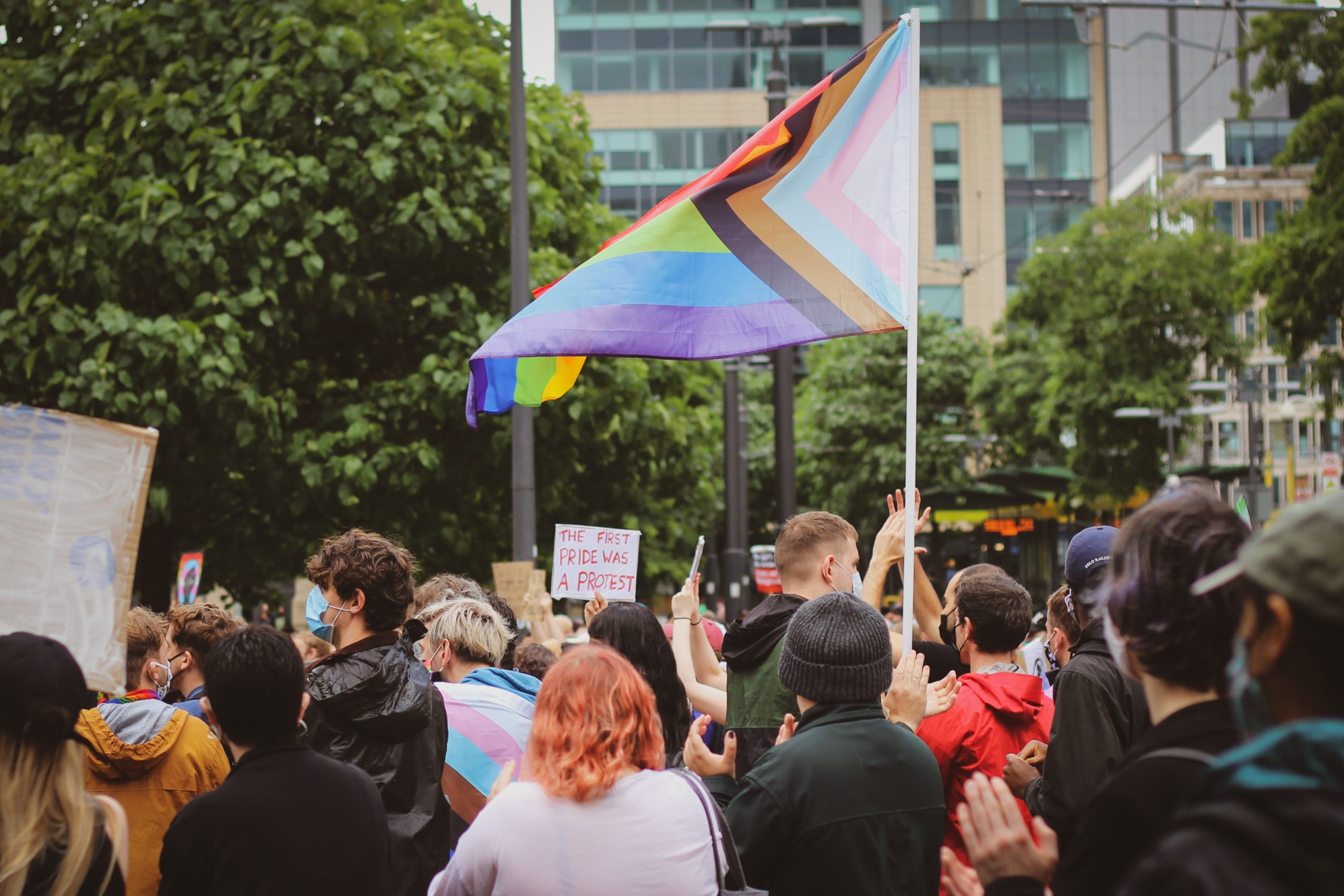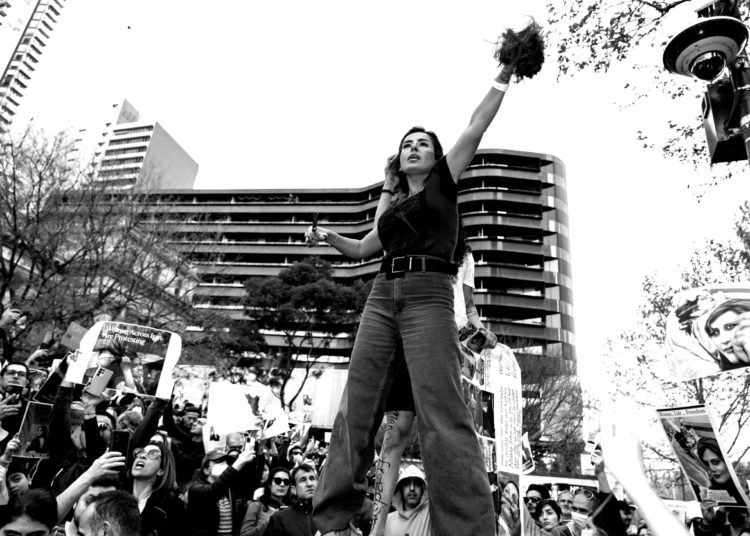This post is also available in: العربية (Arabic)
This article is inspired from a conversation the author had with Sasha Elijah, a Lebanese trans woman residing in Lebanon, on the relationship between feminists and trans women.
“I feel embarrassed when I say feminism and people do not think ‘revolution in service of every living thing’. I think I will spend my life trying to rectify this.” –Lola Olufemi, Experiments in Imagining Otherwise.
In an ideal world, feminism would just be a synonym for solidarity in its truest form. And knowing that there is no one form of solidarity, considering the different contexts of oppression—not only in different parts of the world, but even within the microcosms of one same society—there is therefore no one form of feminism. As such, in its very nature, it is mutable, but its underpinnings are always, or should always be, unchanging in their quest for equality.
The reality is, though, that feminism has fallen short of what it was supposed to accomplish. This is evident through all feminisms that are not intersectional. Non-intersectional, exclusionary feminism: while this would seem counterintuitive, since equality cannot include exclusion, it is the case for many, especially—but not limited to—feminists whose “filtration system”, to quote directly from a very enriching conversation with Sasha Elijah, leaves no room for solidarity.
“Trans women were excluded by the radical feminists,” Sasha asserts. “What you stand for depends on the context you’re in, on your environment. I understand that if you’re a radical feminist who does not stand with trans women, that could work for you and others similar to you, but I won’t feel included in it because I don’t fit in your system. I don’t even pass through your filtration system you’ve put up so many barriers to your solidarity.”
Is it solidarity when it’s on your—anyone’s—terms?
It’s unsettling to see some feminists be counterproductive, leaving marginalized communities behind when the feminist struggle is at its core about equality for all humans. When I asked Sasha what she thought about radical feminists who claim that trans women are still men, sneaking patriarchal ideologies into feminist spaces, she shut that claim down with a reminder not to reduce women to their genitalia.
 “Women are more than their reproductive systems. Being a woman is so much more than that, and reducing women to a specific role like that is problematic. These fears of an infiltrating patriarchal ideology could be due to internalized feelings—it’s a reflection of what you’re seeing, of your own internalized ideas. We all have internalized misogyny, even towards ourselves. Patriarchy is rooted in our brains, in how we’re raised, and these things don’t change overnight.”
“Women are more than their reproductive systems. Being a woman is so much more than that, and reducing women to a specific role like that is problematic. These fears of an infiltrating patriarchal ideology could be due to internalized feelings—it’s a reflection of what you’re seeing, of your own internalized ideas. We all have internalized misogyny, even towards ourselves. Patriarchy is rooted in our brains, in how we’re raised, and these things don’t change overnight.”
This leads me directly to the notion of growth, of evolution as the constant. Of altering perceptions to encourage growth. When did we forget that beneath all the labels, we are all just human?
The whole point of intersectionality is that there is no one-size-fits-all definition or version of feminism that applies to everyone.
Trans women bear the brunt of dealing with prejudice from all sides, excluded by both the patriarchy and a number of feminists. It’s no wonder then that Black trans women were the first to challenge the system. Feminism as a global concept has become a sort of illusionary utopia, one whose ideals are not being applied equally to all women of all races and social classes. And this begs the question: even when ‘equality’ is promoted, are women just made to ‘succeed’ in the capitalist sense of the word? Whenever and wherever this is the case, does this not all lead back to the same root of the problem, knowing that patriarchy, capitalism, and white supremacy are just different sides of the same coin (pun intended)?

These topics are always tricky to talk about because even with a word as ‘succinct’ as feminism, there are already so many different angles and so many different intersections that it’s impossible to give one definition—and should there be? The whole point of intersectionality is that there is no one-size-fits-all definition or version of feminism that applies to everyone.
And because people’s personal contexts are so different, representation fails to be as benevolent as it claims. “Who am I to represent anyone else, be they a feminist or a trans woman, and who is anyone else to represent me?” Sasha asks. “It’s like we have to represent and do this and do that, we all have to put ourselves out there in this way, but if we peel back that very thin first layer, behind it we are all struggling. People only represent themselves, their own consciousness, their own views, what they believe in, and who they are as humans. Grouping people under one umbrella is still a sign of dissecting… and what is the purpose of that?”
Is it only after one has been made to suffer and struggle that they become deserving of respect, of care? If these are the rules, how do we rewrite them?
Collective work and solidarity in the sense of building feminist economies can come without representation. People are not the same, and once you throw in the intricacies of class and race, the difference of privilege, it becomes even more complex to claim to speak for someone.
Further in our discussion on representation, Sasha questions whether being catapulted to icon or legend status is worth the destruction that comes with it. “Thinking of Suzy, was she really a representative (for the trans community in Lebanon), or is she actually a martyr? The way she was taped and humiliated on the streets, taken to police stations till the end of her life—if representation means putting someone under the spotlight and stripping them of everything, no one wants that. At what cost!?” She continues to elucidate that the idea of ‘earning’ or ‘deserving’ anything is inherently rooted in capitalism—having to struggle incredibly to become an ‘icon’… again, at what cost?
And is it only after one has been made to suffer and struggle that they become deserving of respect, of care? If these are the rules, how do we rewrite them? Where do we begin?































